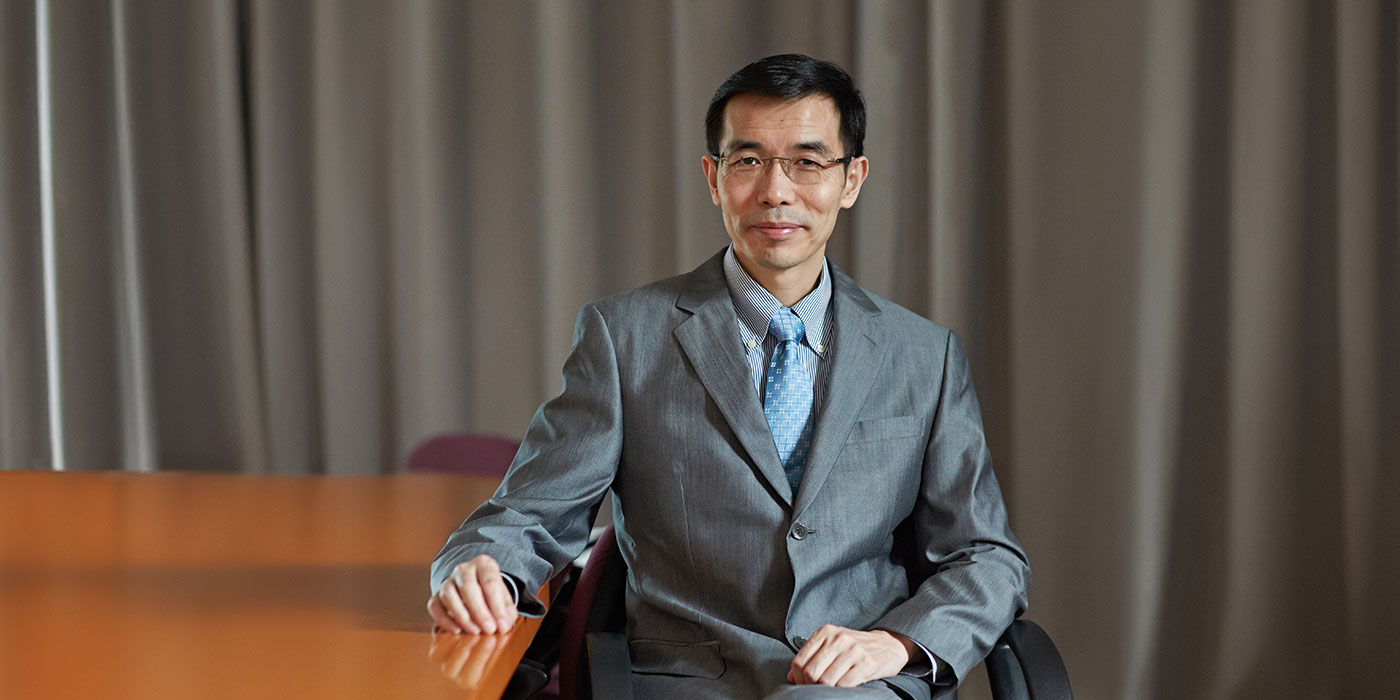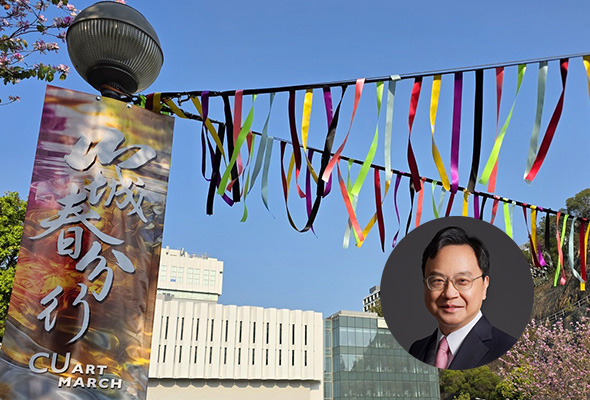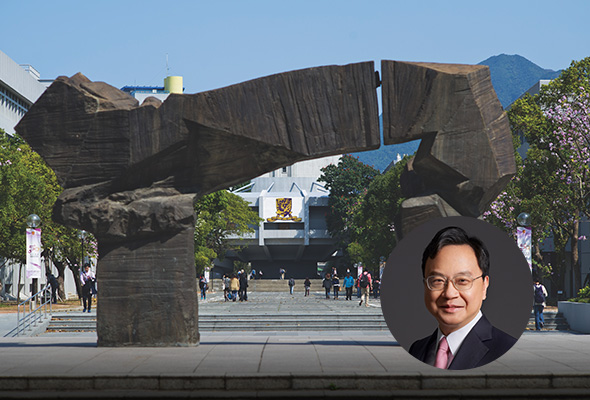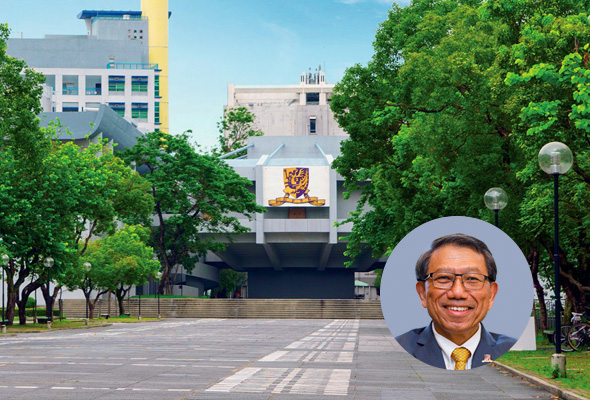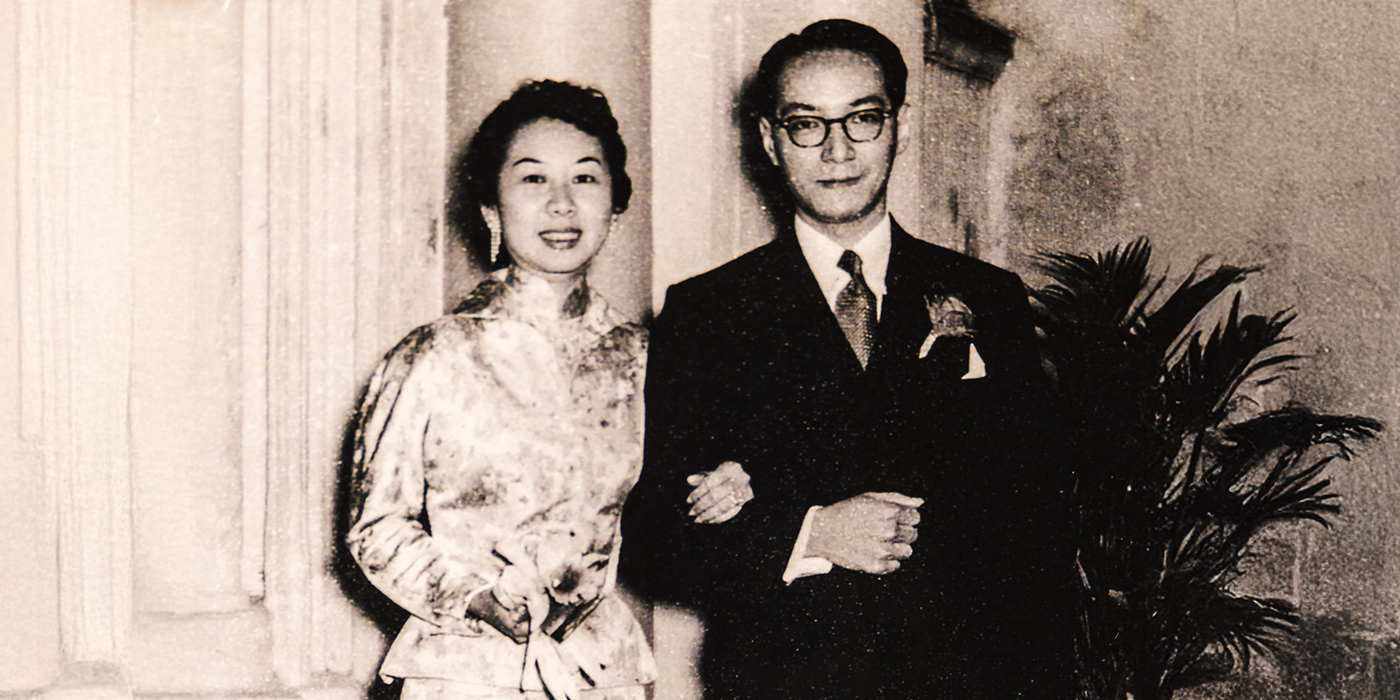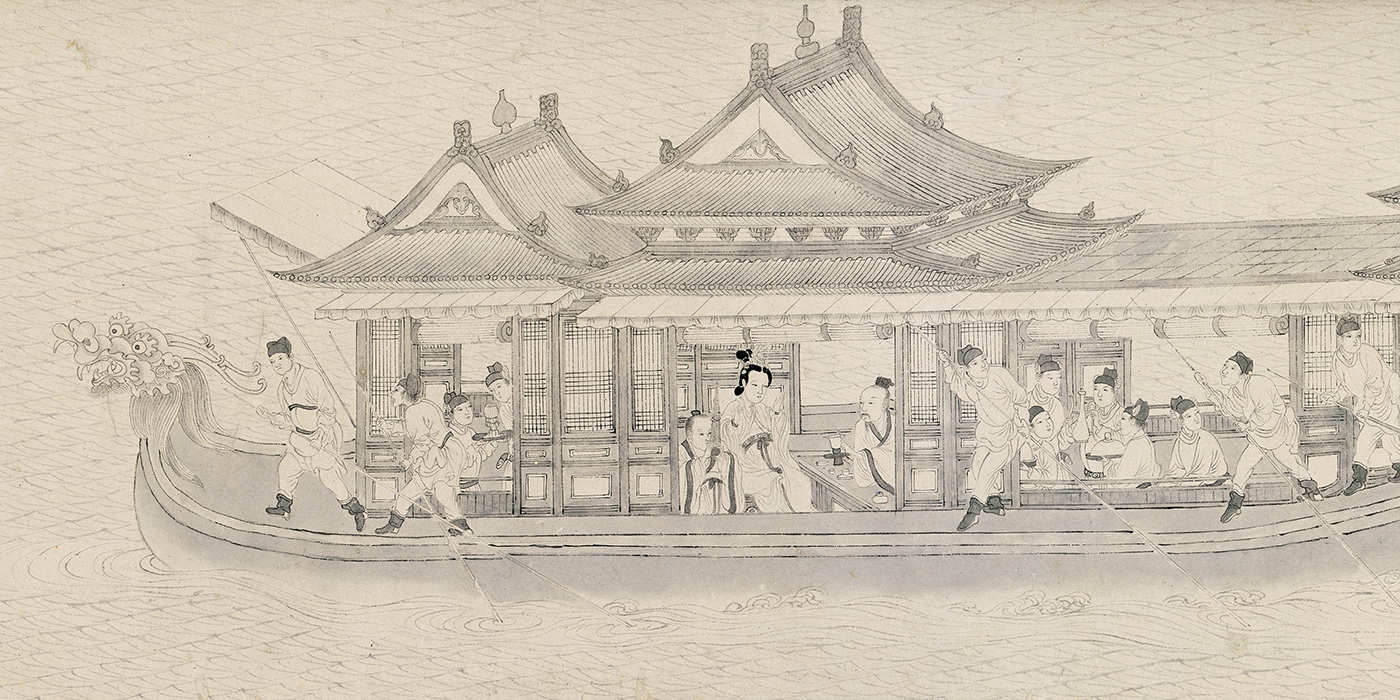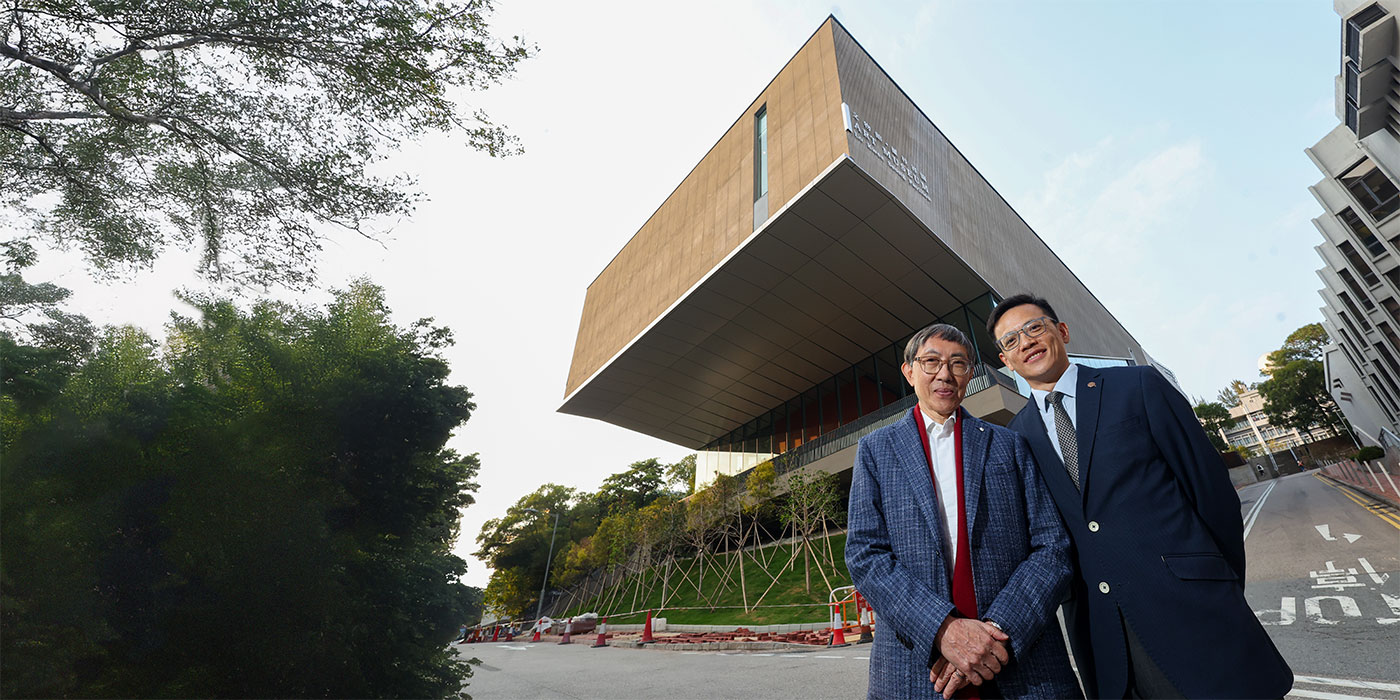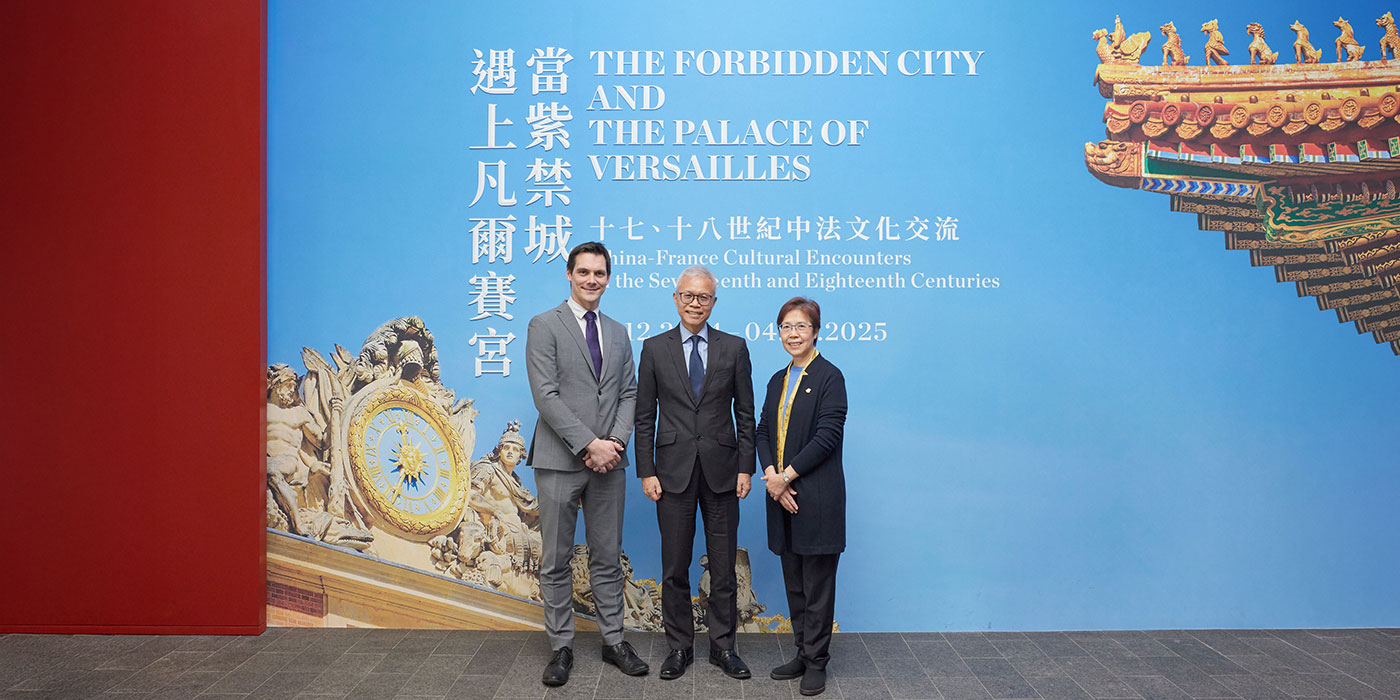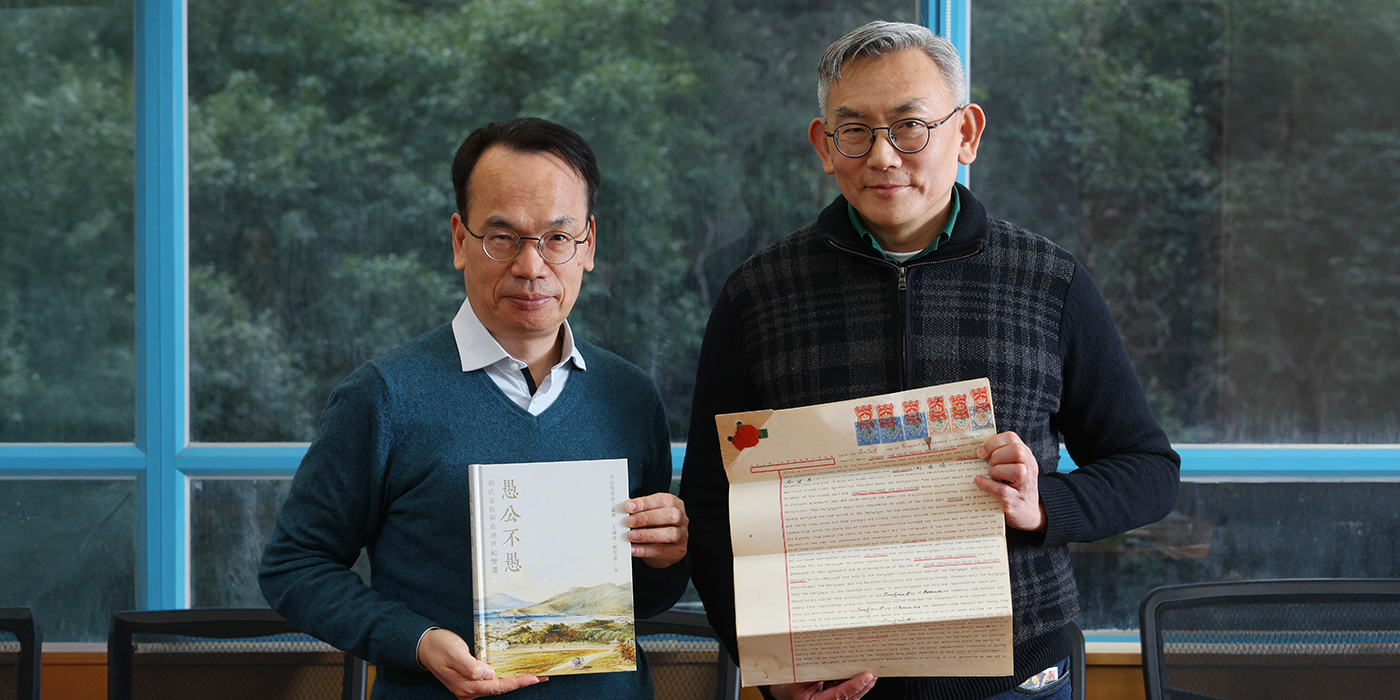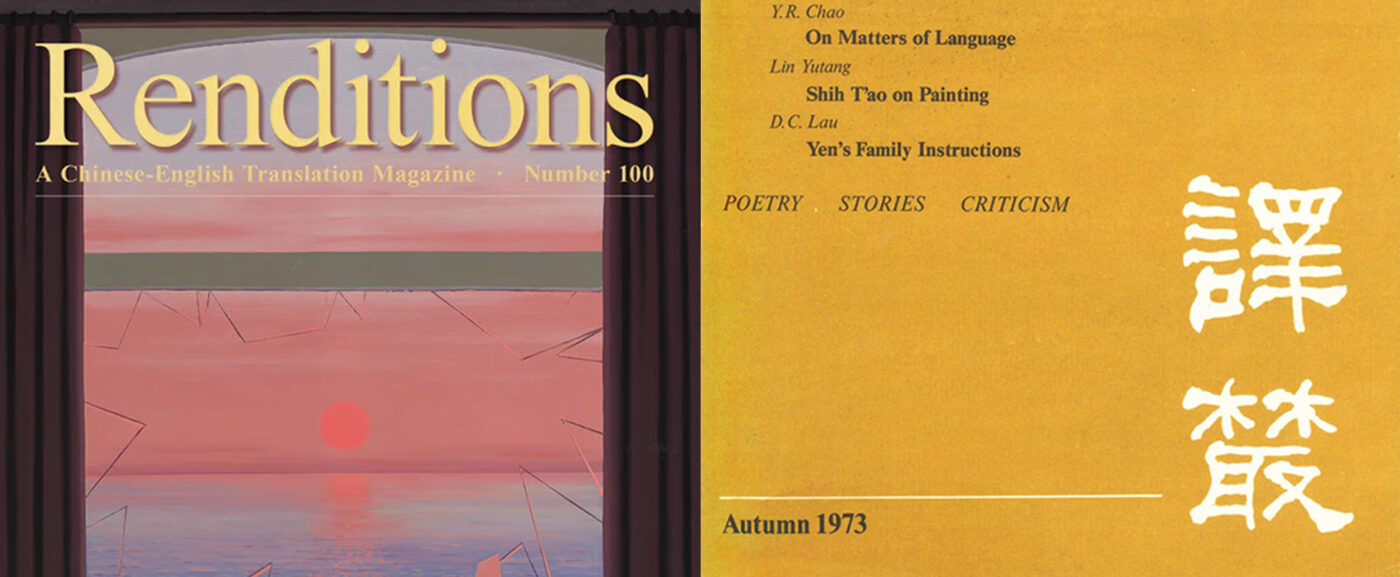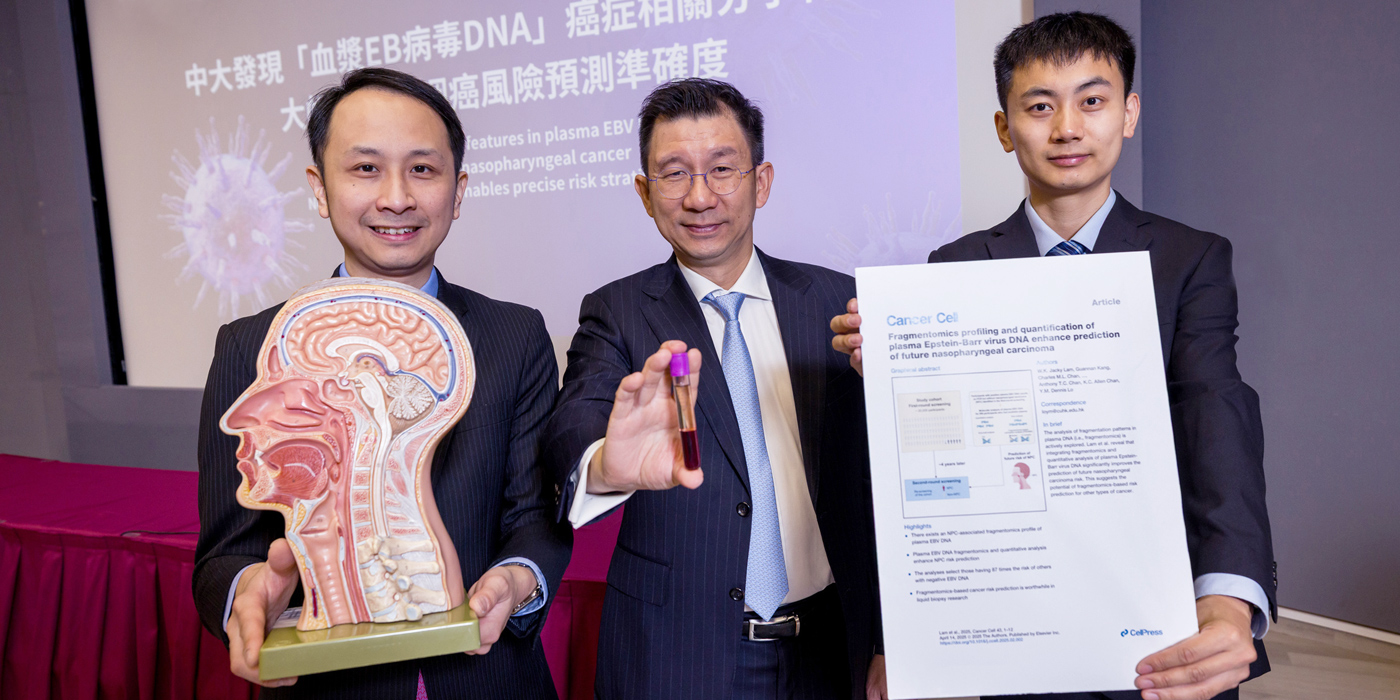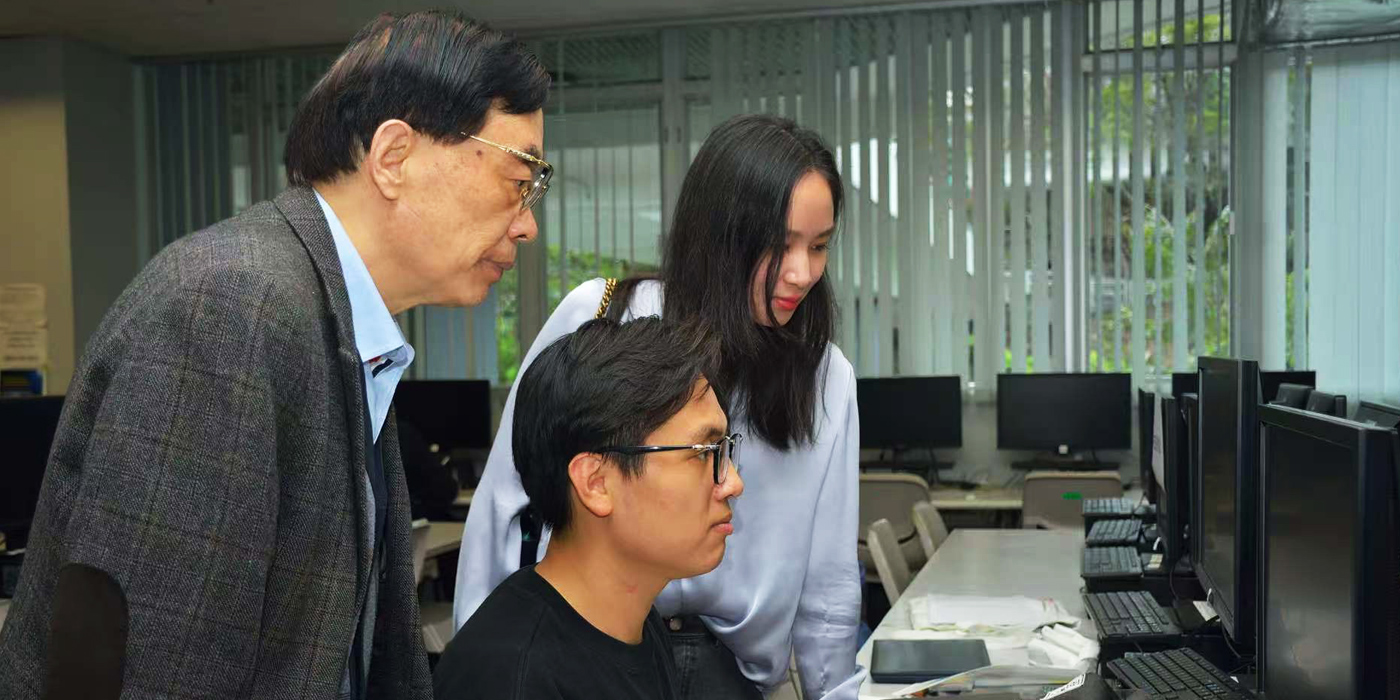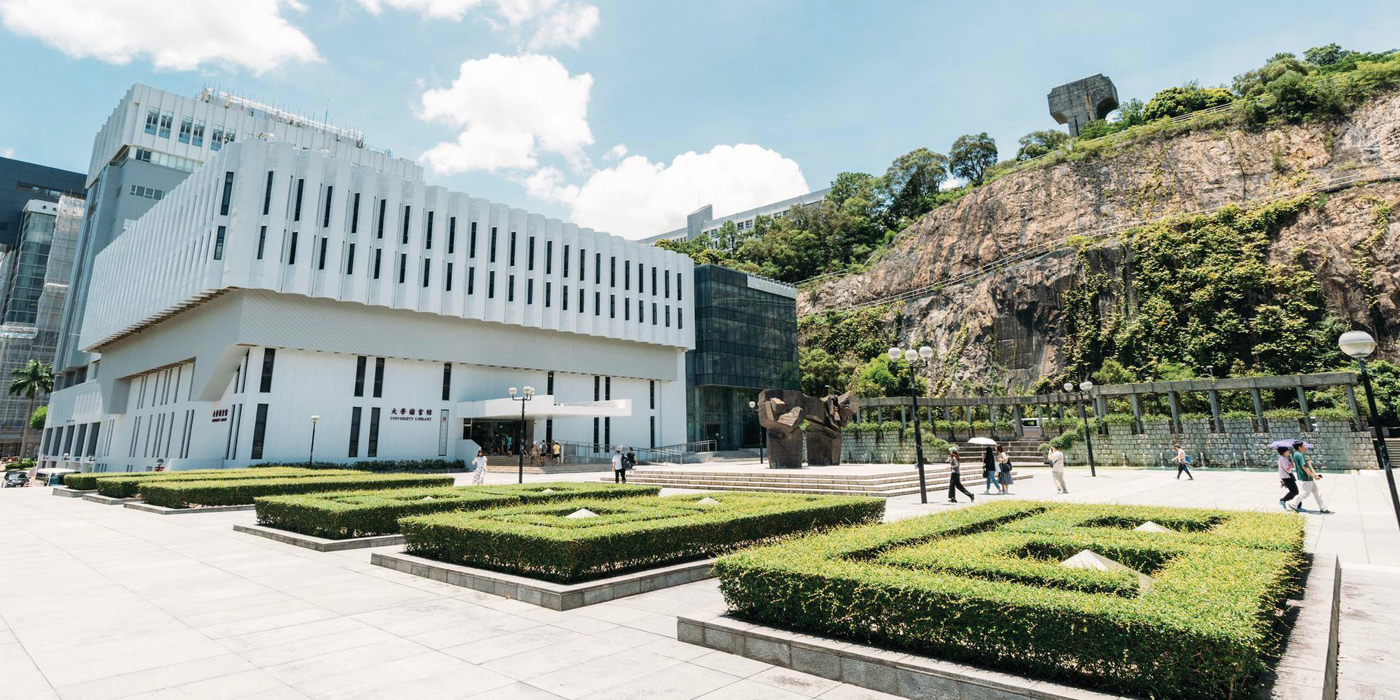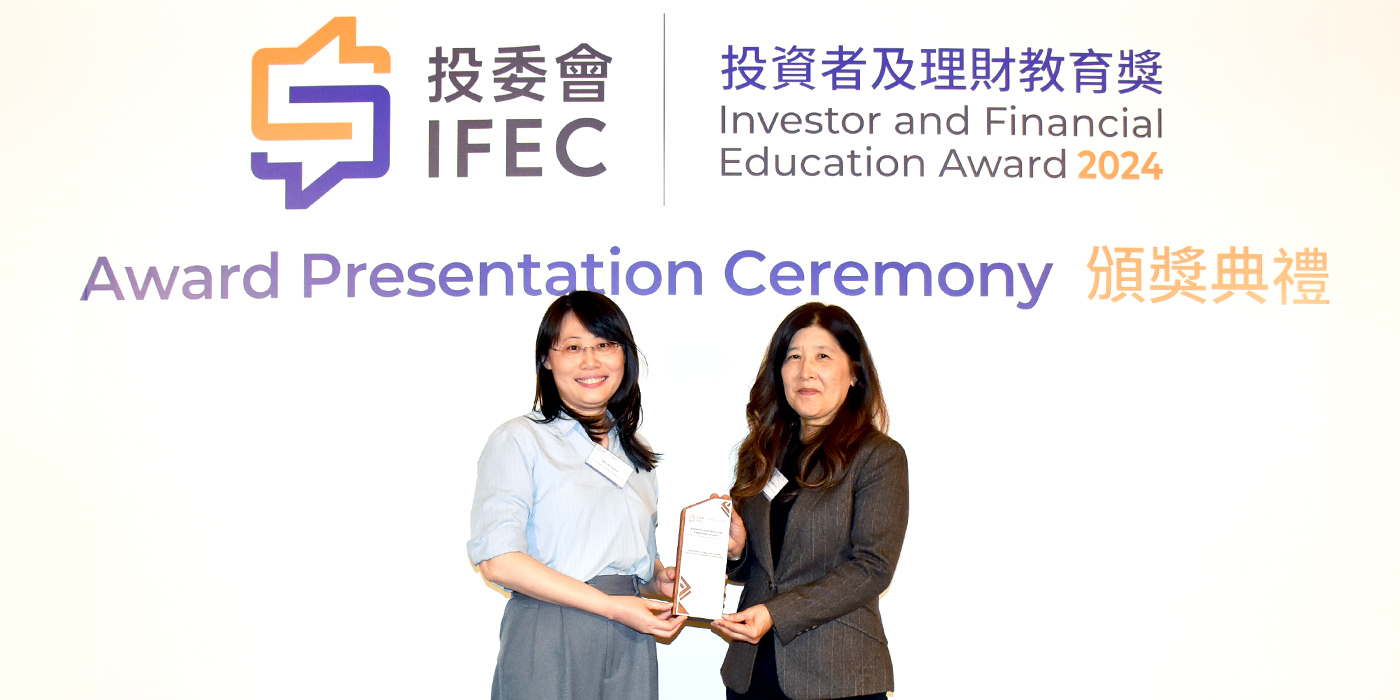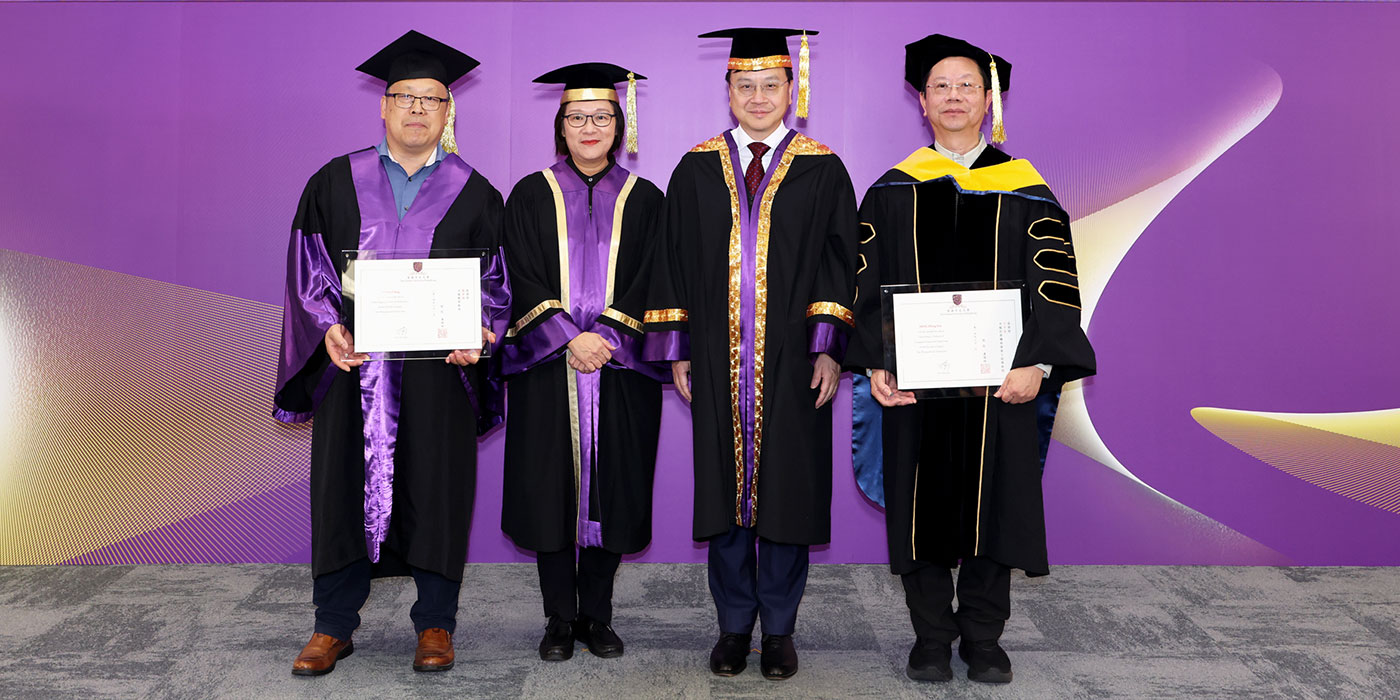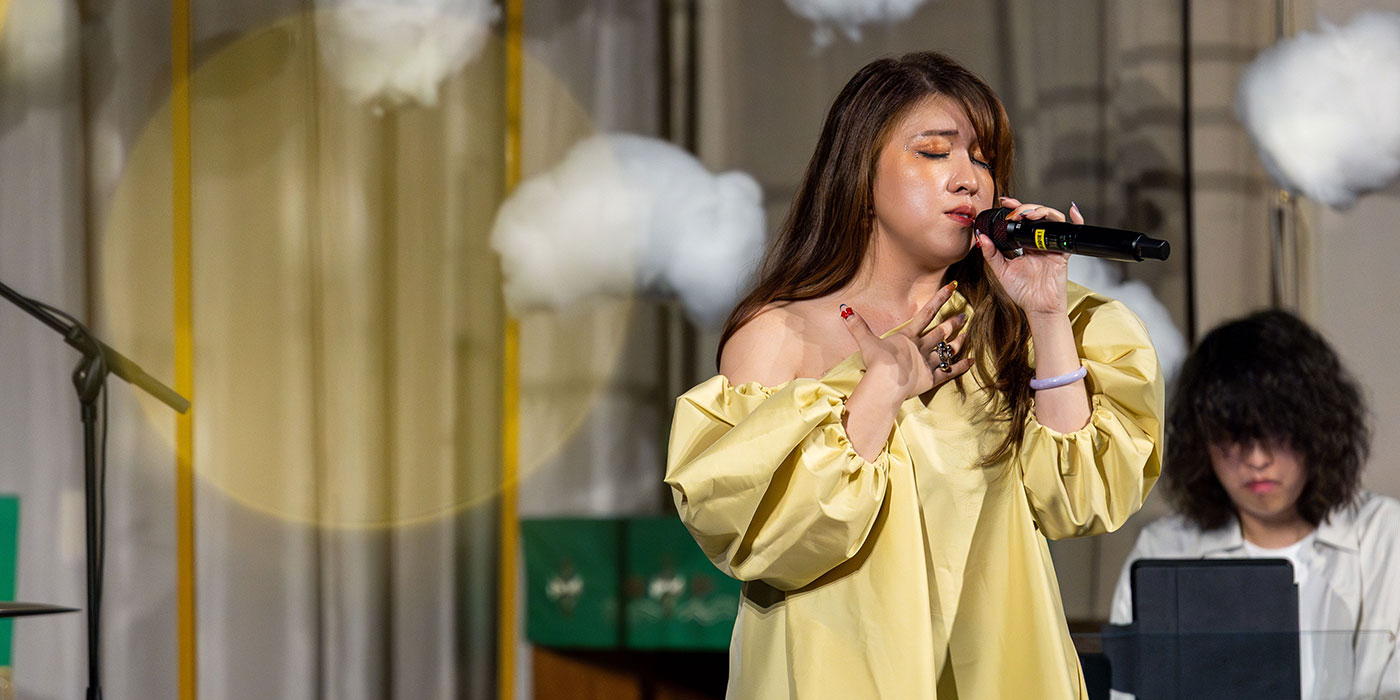An AI pioneer’s unbreakable bond with CUHK
Tang Xiao'ou inspired a generation of scientists
Professor Tang Xiao’ou passed away in December last year. The artificial intelligence visionary forged an unbreakable bond with CUHK which spanned a quarter of a century. In 1996, he obtained his PhD degree from the Massachusetts Institute of Technology (MIT). Two years later, he joined the Department of Information Engineering of CUHK, where he established the Multimedia Laboratory (MMLab) in 2001. Throughout his career, Professor Tang led his team to attain groundbreaking achievements in computer vision, facial recognition systems and deep learning. At the GPU Technology Conference 2016, a global summit, MMLab was recognised as one of the top ten AI pioneers.
Professor Tang, who was born in Anshan, Liaoning province, was dubbed the man who developed CUHK into a “modern-day Whampoa Military Academy” in the realm of computer vision in China by nurturing more than 100 students during his years at the University (the Whampoa academy was founded by Dr Sun Yat-sen in 1924 with the mission of creating a revolutionary army to save China).
Professor Tang’s mentees include Wang Xiaogang, who made breakthroughs in facial recognition, and Lin Dahua, who spearheads the OpenMMLab project that aims at building high-quality open-source toolboxes for computer vision research. He Kaiming, who joined hands with the professor in winning the Best Paper Award at the prestigious IEEE Conference on Computer Vision and Pattern Recognition (CVPR) in 2009, and Xue Tianfan, Assistant Professor of CUHK’s Department of Information Engineering, are among other outstanding students Professor Tang had groomed at the University.
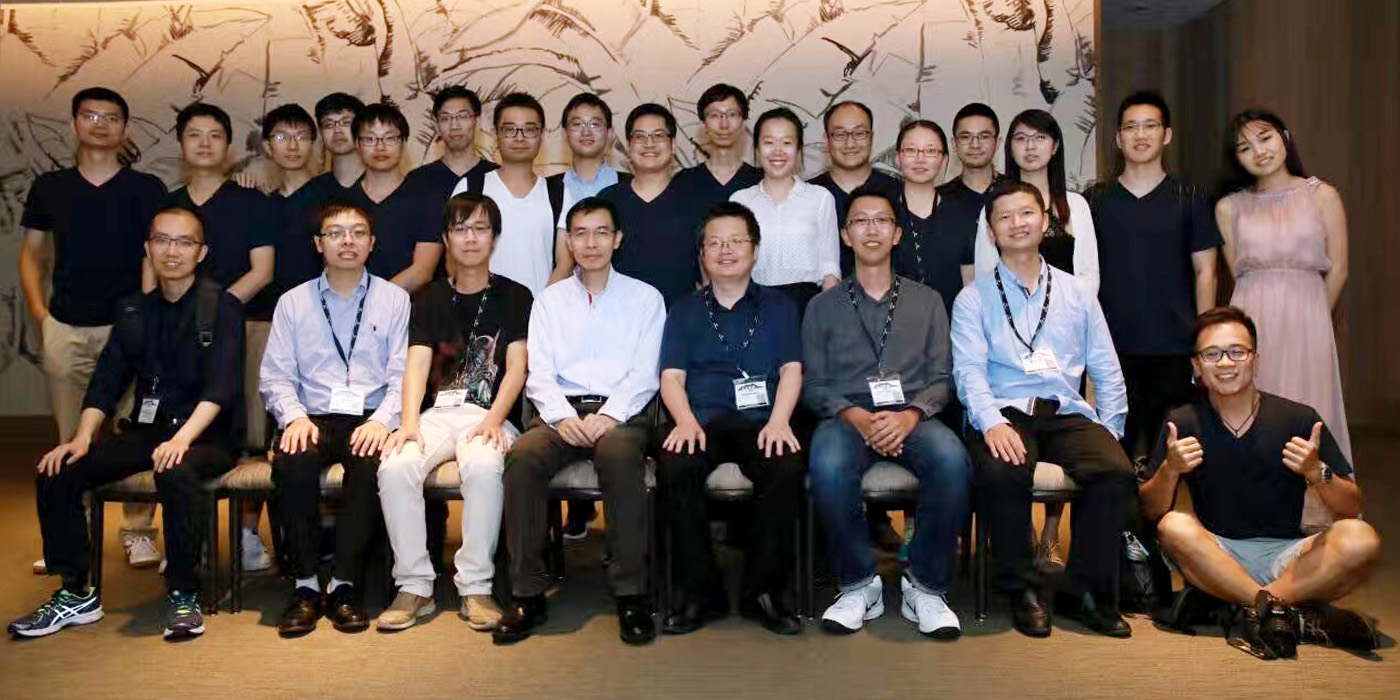
Professor Wang enrolled in the information engineering master’s degree programme at CUHK in 2001, shortly after graduating from the University of Science and Technology of China. Thanks to a recommendation from Professor Tang, he pursued doctoral education at MIT and returned to CUHK in 2009 to teach at the Department of Electronic Engineering.
A deep learning vision
Deep learning, a type of machine learning that uses algorithms meant to function in a manner similar to the human brain, powers most of the AI in our lives today. Professor Wang was impressed by Professor Tang’s vision in foreseeing the opportunities brought by deep learning for studies on computer vision in the early 2010s. “In 2012, Professor Tang envisaged the huge potential brought by deep learning and he directed us to switch our research focus to the area,” Professor Wang recalls.
Professor Xue pursued a master’s degree in information engineering at CUHK in 2009 and went on to receive his PhD degree at MIT. “As early as 2012, Professor Tang had envisioned the importance of deep learning, devoting and focusing resources to studies in the field. Its importance was not recognised by industrialists in other countries until 2015. Professor Tang’s vision in deep learning pointed a clear direction for us,” says Professor Xue, who has been teaching at CUHK since 2022.
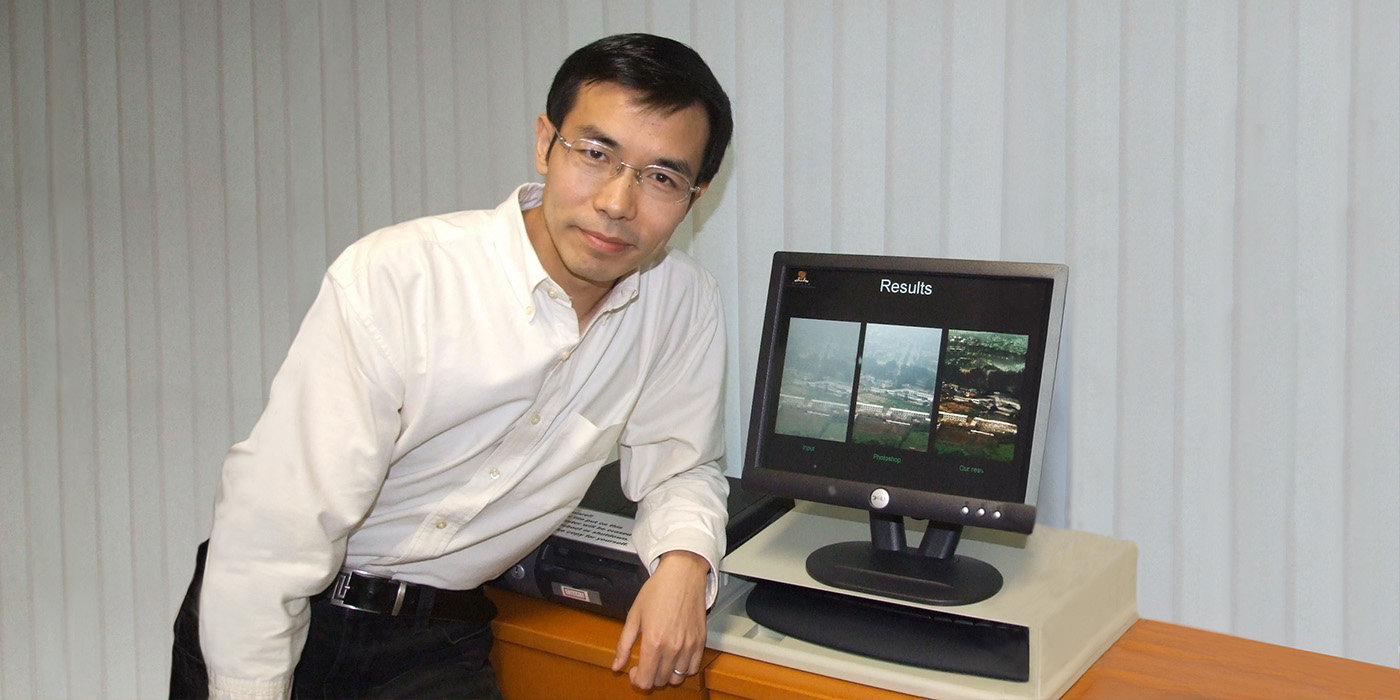
From 2011 to 2013, MMLab had a total of 14 papers on deep learning accepted to CVPR and the International Conference on Computer Vision (ICCV), accounting for nearly half of the total number of papers in this field worldwide. In 2014, Professor Tang’s research team developed the world’s first facial recognition algorithm that exceeded human recognition capabilities, an important milestone in the industrialisation of AI.
Professor Wang, who played a leading role in research on facial recognition at the time, recalled that the graphic processing unit for performing complex mathematical operations was not yet popular. Professor Tang rented hundreds of central processing units, and the research team spent several months studying facial recognition algorithms. At that time, Facebook’s facial recognition database had samples from 7.5 million people, while their team only had samples of 200,000. Professor Wang says: “Professor Tang’s confidence and goal setting were critical elements of the team’s success. If it were someone else, they might have given up because the data volume was far behind.”
Venturing into business
In October 2014, Professors Tang, Wang, and Lin founded SenseTime, which was listed on the Hong Kong Stock Exchange seven years later. “Putting AI research to industrial production was a dream of Professor Tang. In 2014, he achieved a breakthrough in facial recognition and felt that the opportunity had arisen,” Professor Wang says. Their team’s facial recognition technology has been widely used by mainland financial and commercial institutions, involving nearly 400 million people.
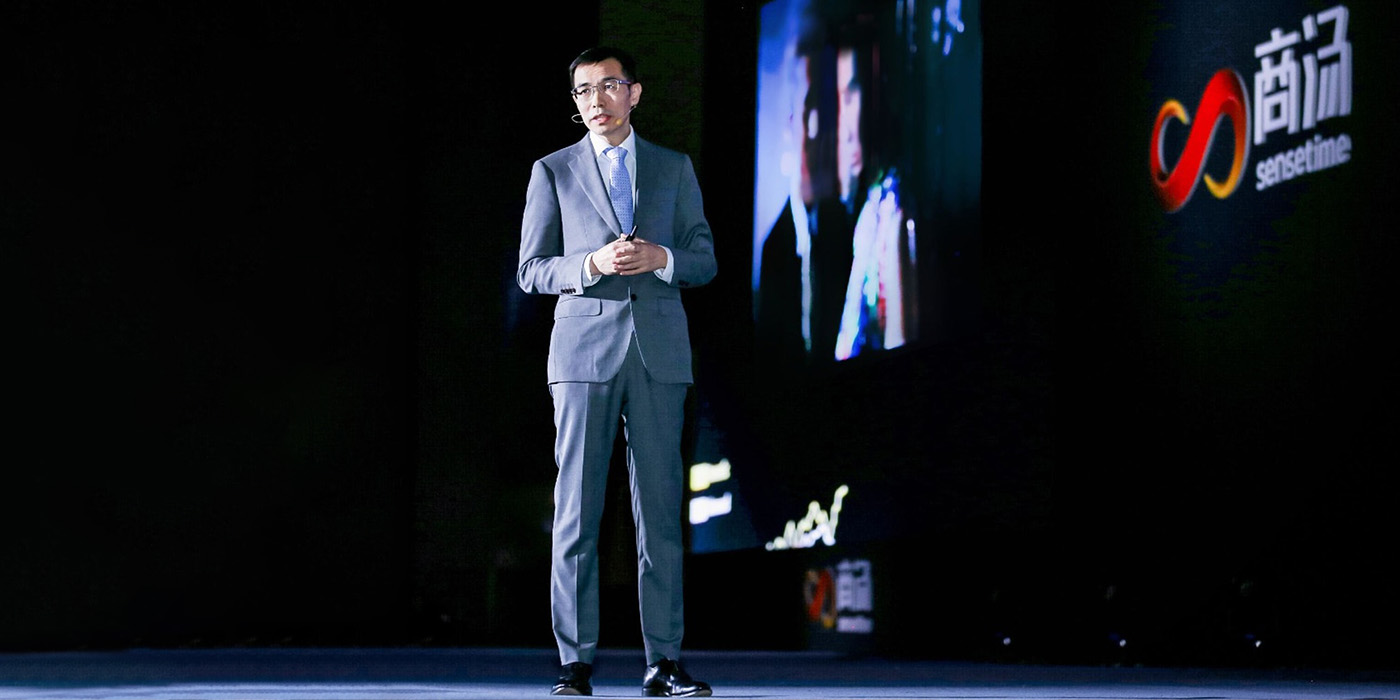
Founding a startup is always a risky move and Professor Tang himself had to fork out his own money to support the company. Professor Wang, the chief scientist of SenseTime, knows the difficulties too well. “The risk of starting a business is very high, but it was Professor Tang’s dream. In the early days of the establishment of the company, financing was difficult and the company’s cash flow was once only enough to sustain operation for a week,” Professor Wang recalls. “Our financial director thought this was incredible, but Professor Tang was still able to come up with various solutions to solve the problems.”
Professor Lin notes that Professor Tang believed that the AI technologies derived from the outstanding research output of his team would be fundamentally valuable to society. “But the value of these technologies could not be fully realised if they just stay in the university laboratory. It requires the operation of a company to bring out the value through product development and commercialisation. So Professor Tang founded SenseTime.” Professor Tang has always emphasised to them that research must have an impact on society, Professor Lin says.
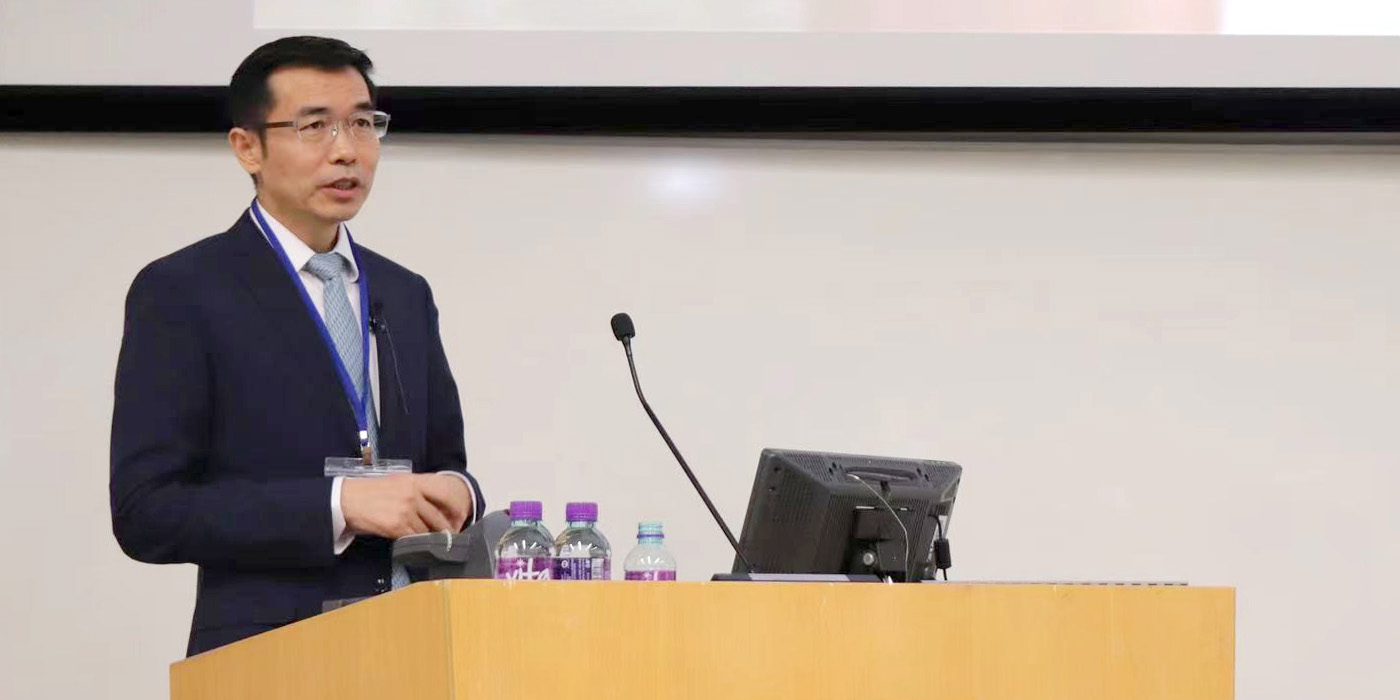
Professor Lin was impressed by Professor Tang’s teaching style, which focused on methodological guidance rather than imparting knowledge and technology to students in detail. “When I first started doing research, I often wrote a lot of mathematical formulas, assuming that the more formulas I presented, the more advanced the technology was,” he recalls. “But every time I discussed my papers with Professor Tang, he would remove some superficially complex concepts. He told me that for any truly good work, the core principles can be explained in two sentences, not by writing a lot of formulas, but by explaining what the core idea is and how you solve a certain problem, and then verifying it.”
Professor Lin describes Professor Tang as a man who always had empathy for other people. Professor Tang once said: “You will have many friends if you are a person with compassion and empathy. When you do your best to help your friends and relieve their anxiety, your own anxiety will be resolved as well.”
At the 2023 World Artificial Intelligence Conference held in Shanghai in July last year, Professor Tang remarked: “It’s not that I met you in the best of times, but that having met you, I had the best of times.” He was referring to his bond with students and professors whom he had worked with. This statement richly illustrates Professor Tang’s love of people and dedication to the sharing of knowledge.
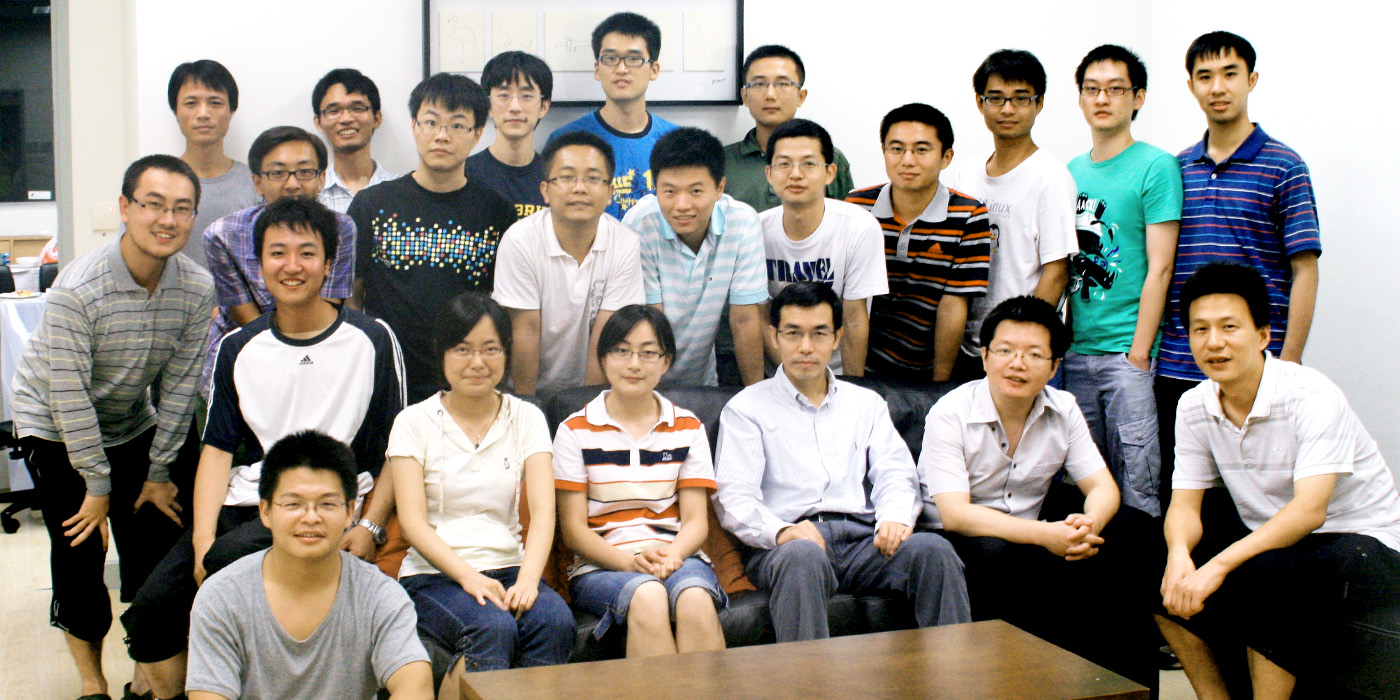
After Professor Tang founded SenseTime, he continued to maintain his close relationship with CUHK and be a proud member of the CUHK community. In 2020, SenseTime and CUHK jointly established the Centre for Perceptual and Interactive Intelligence, one of the research institutions established under the Hong Kong government’s InnoHK initiative to transform the city into a global innovation powerhouse. In recent years, Professor Tang served as the director of both the Pujiang Laboratory and the Shanghai Artificial Intelligence Laboratory. In 2021, he supported the establishment of the Interdisciplinary Institute of Artificial Intelligence at CUHK, and Professor Lin is currently its director.
Delivering welcoming remarks at the Global Talent Summit of Hong Kong on 7 May, Hong Kong Chief Executive John Lee Ka-chiu emphasised that talent was the prime resource and driving force that boosted economic development and competitiveness. He went on to pay tribute to Professor Tang: “A computer scientist and a pioneer in the field of artificial intelligence, he was among the first few in promoting the commercialisation of research and development outcomes in Hong Kong. Some of his outstanding achievements include the founding of the Chinese University of Hong Kong’s Multimedia Laboratory and, of course, the founding of Hong Kong’s first home-grown unicorn to be listed on our very own stock exchange.
“No less vital was his vision and dedication in working with youth and grooming young talent. He mentored numerous outstanding AI talent here in Hong Kong and on the mainland,” the chief executive said.
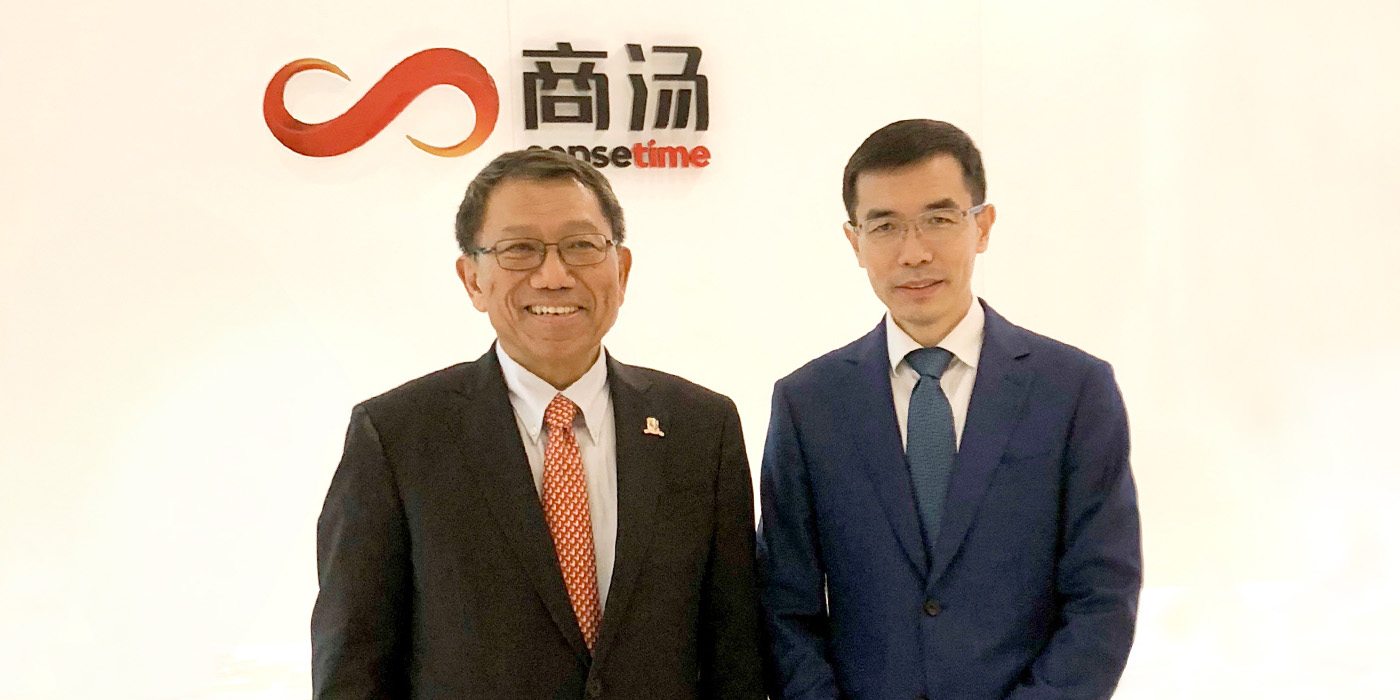
CUHK Vice-Chancellor and President Professor Rocky S. Tuan, who has known Professor Tang for many years, says: “Professor Tang was a pioneer in taking his ground-breaking research beyond the laboratory and translating it into a world-leading unicorn enterprise, SenseTime, inspiring countless people. He was a visionary who brought the marvels of AI into the realm of human lives.”
Professor Tuan treasures the long friendship and grieves the sudden passing of his good friend. “The University will continue to support and develop the mission of the CUHK Interdisciplinary Institute of Artificial Intelligence and the nurturing of the next generation of talents in artificial intelligence. May Professor Tang’s genuine passion for knowledge and the benefits of mankind, as well as his unwavering devotion, continue to guide us as in our pursuit of excellence with purpose and responsibility,” he says.
Professor Xue says the late scientist attached great importance to inspiring students in teaching and encouraging them to explore and research on their own. “He was our collaborator, not our supervisor. He often interacted with students, playing tennis and basketball with us, and inviting us for casual chats and treating us to pizzas.”
When he studied his master’s degree at CUHK, Professor Xue took Professor Tang’s multimedia processing course. In 2022, Professor Xue joined the Department of Information Engineering of CUHK as an academic, and one of the courses he is currently teaching is multimedia coding and processing. He is determined to follow in his teacher’s footsteps, nurturing talents in the field of the AI for CUHK, Hong Kong, and the country.
By Gary Cheung

